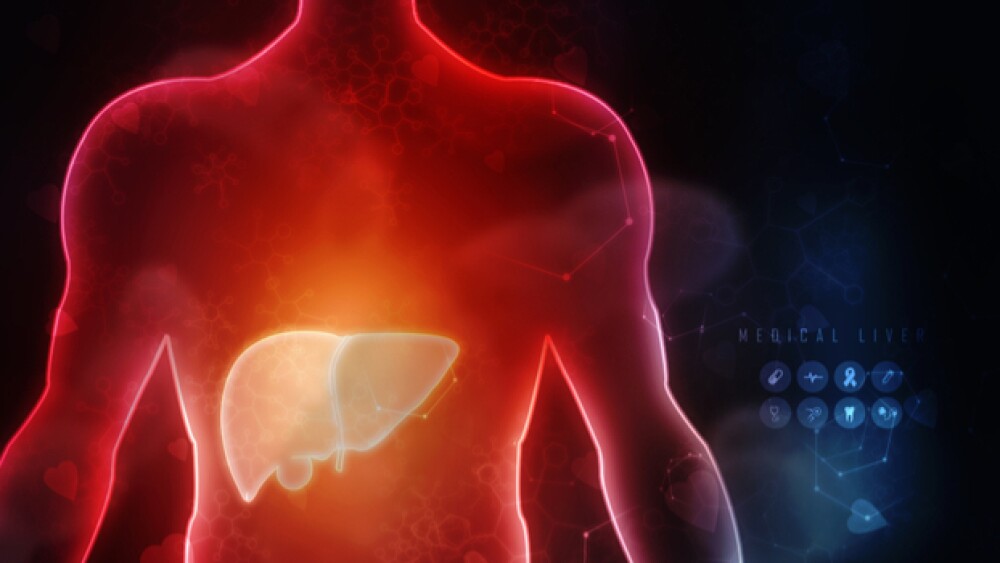As the International Liver Conference continues to unfold in Vienna, multiple companies are presenting data on potential treatments that can address numerous needs. BioSpace takes a look at some of the data.
As the International Liver Conference continues to unfold with the European Association for the Study of the Liver (EASL) in Vienna, multiple companies are presenting data on potential treatments that can address numerous needs. BioSpace rounds up some of the data from companies taking a stab at developing a treatment for nonalcoholic steatohepatitis (NASH).
Gilead Sciences – In the wildly popular NASH space, liver disease specialist Gilead Sciences reported new proof of concept data that showed positive data from a combination treatment. California-based Gilead said the combination of its investigational, selective, non-steroidal farnesoid X receptor agonist cilofexor and the acetyl-CoA carboxylase inhibitor firsocostat “resulted in improvements in hepatic steatosis, liver stiffness, liver biochemistry and serum fibrosis markers.” Gilead said a significant decline of at least 30 percent in hepatic fat measured by magnetic resonance imaging-proton density fat fraction was observed in 74 percent of patients at 12 weeks from baseline. Additionally, Gilead said that improvements in liver biochemistry tests including serum ALT and GGT, along with markers of reduced bile acid synthesis, were also observed at 12 weeks. The treatment was well tolerated and pruritus was not reported in any patients, the company said. Gilead’s selonsertib, cilofexor and firsocostat are being studied in the ATLAS Phase II combination trial in advanced fibrosis due to NASH with results expected later this year.
Gilead also presented data that may lead the way to a less invasive diagnostic test for NASH. Currently, a liver biopsy is the standard mode of identifying. Screening data from the Phase II study demonstrate the potential use of noninvasive tests in the identification of patients with advanced fibrosis, the company said.
The news for Gilead is important, particularly after earlier this year its Phase III NASH treatment, failed to meet primary its endpoint of treating compensated cirrhosis from NASH.
Viking Therapeutics – Also pushing forward in NASH, San Diego-based Viking presented new results from the company’s 12-week Phase II study of VK2809, its novel liver-selective thyroid receptor beta agonist, in patients with non-alcoholic fatty liver disease (NAFLD) and elevated low-density lipoprotein cholesterol (LDL-C). Some of the highlights from the poster presentation include newly reported data demonstrating that all patients who received 5 mg of VK2809 dosed daily were considered responders, as defined by a relative reduction in liver fat at 12 weeks. Patients in the VK2809 5 mg cohort experienced a statistically significant median relative reduction in liver fat content of 53.8 percent, the company said. The study successfully achieved its primary endpoint, with patients receiving VK2809 demonstrating statistically significant reductions in LDL-C following 12 weeks of treatment. VK2809 was shown to be safe and well tolerated when dosed at 5 mg daily, with no serious adverse events reported. The results were consistent with data from the 10mg dose, Viking said. Overall, a greater proportion of VK2809-treated patients completed the study compared with patients randomized to placebo.
Intercept Pharmaceuticals – New York-based Intercept released additional supportive data from its pivotal Phase III REGENERATE study of obeticholic acid (OCA) in patients with liver fibrosis due to NASH. The data, which is based on additional analysis of the trial, shows that OCA demonstrated robust efficacy across a range of additional histologic and biochemical parameters. In February, Intercept first announced that once-daily treatment of OCA 25 mg met the primary endpoint of fibrosis improvement with no worsening of NASH at the planned 18-month interim analysis. The updated data indicates that OCA also improves other important measures of liver health, “including the key underlying drivers of NASH and biochemical tests that clinicians routinely monitor when managing patients in the real world,” Zobair M. Younossi, the chairman of the REGENERATE Steering Committee said in a statement. Based on the results of the Phase III REGENERATE trial, Intercept plans to seek regulatory approval in the United States and Europe. The company will file for approval in the second half of 2019.





